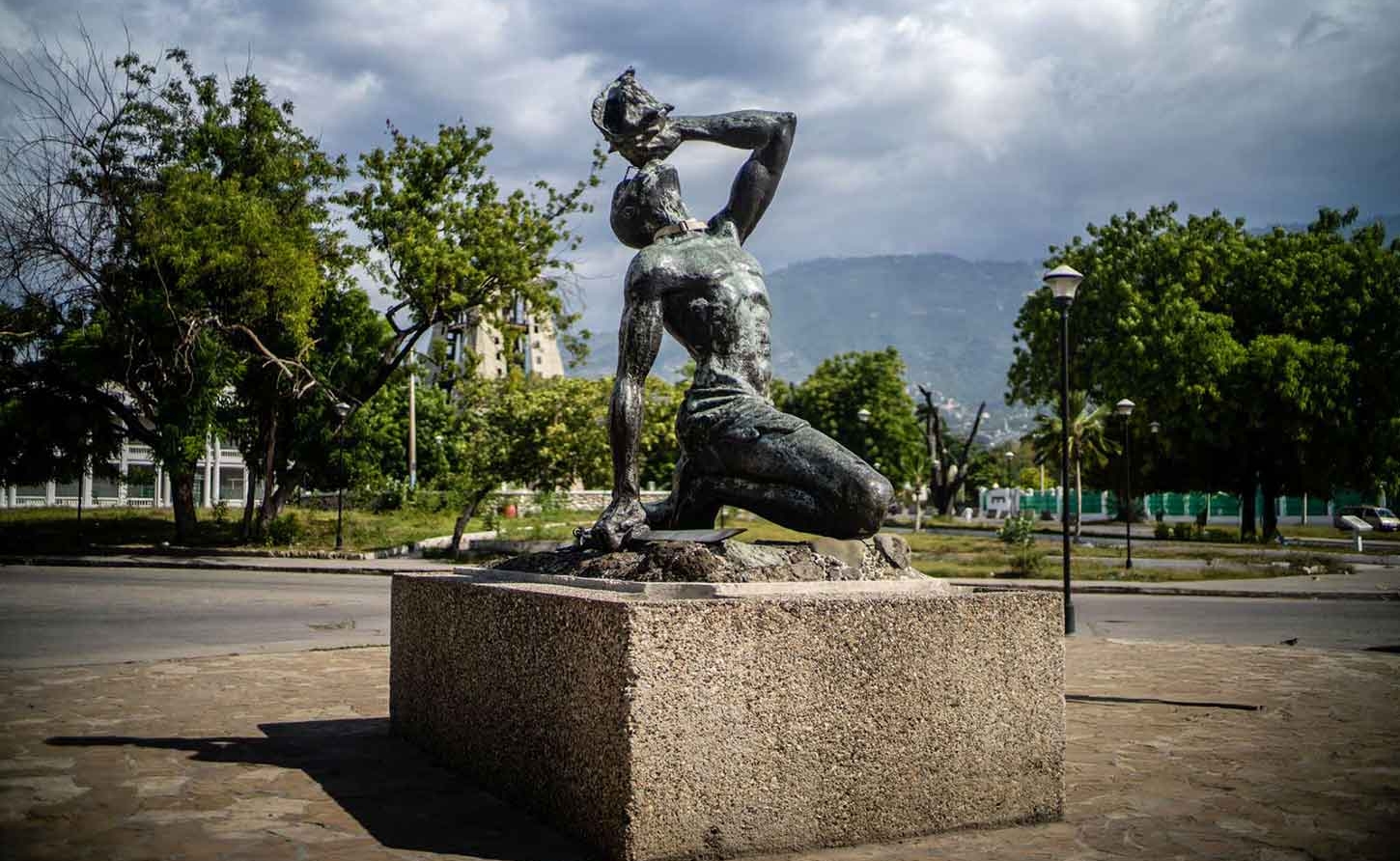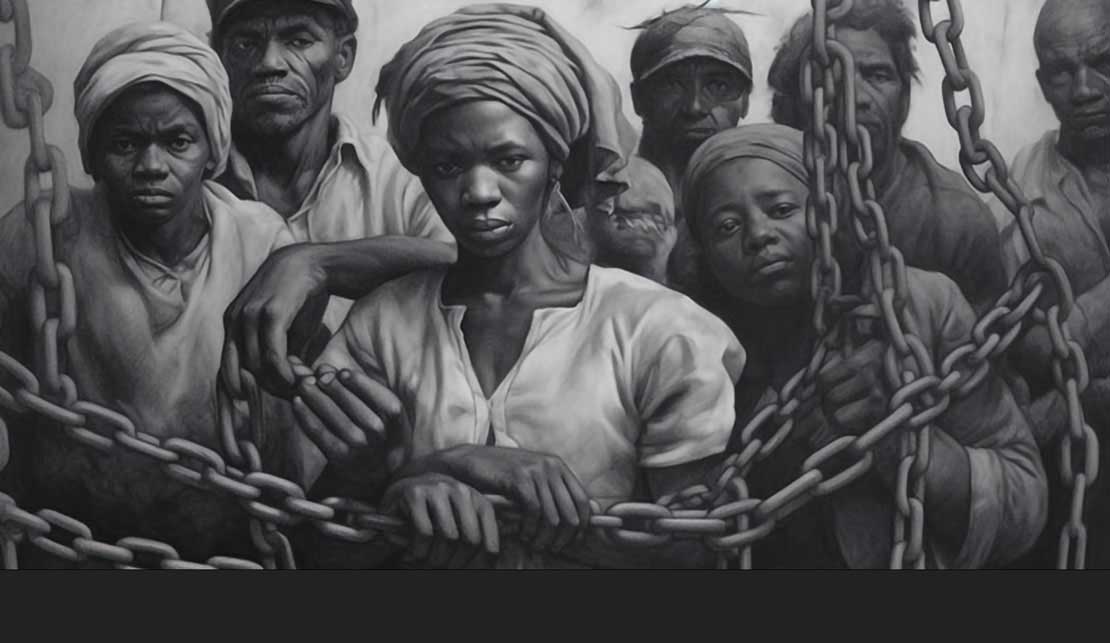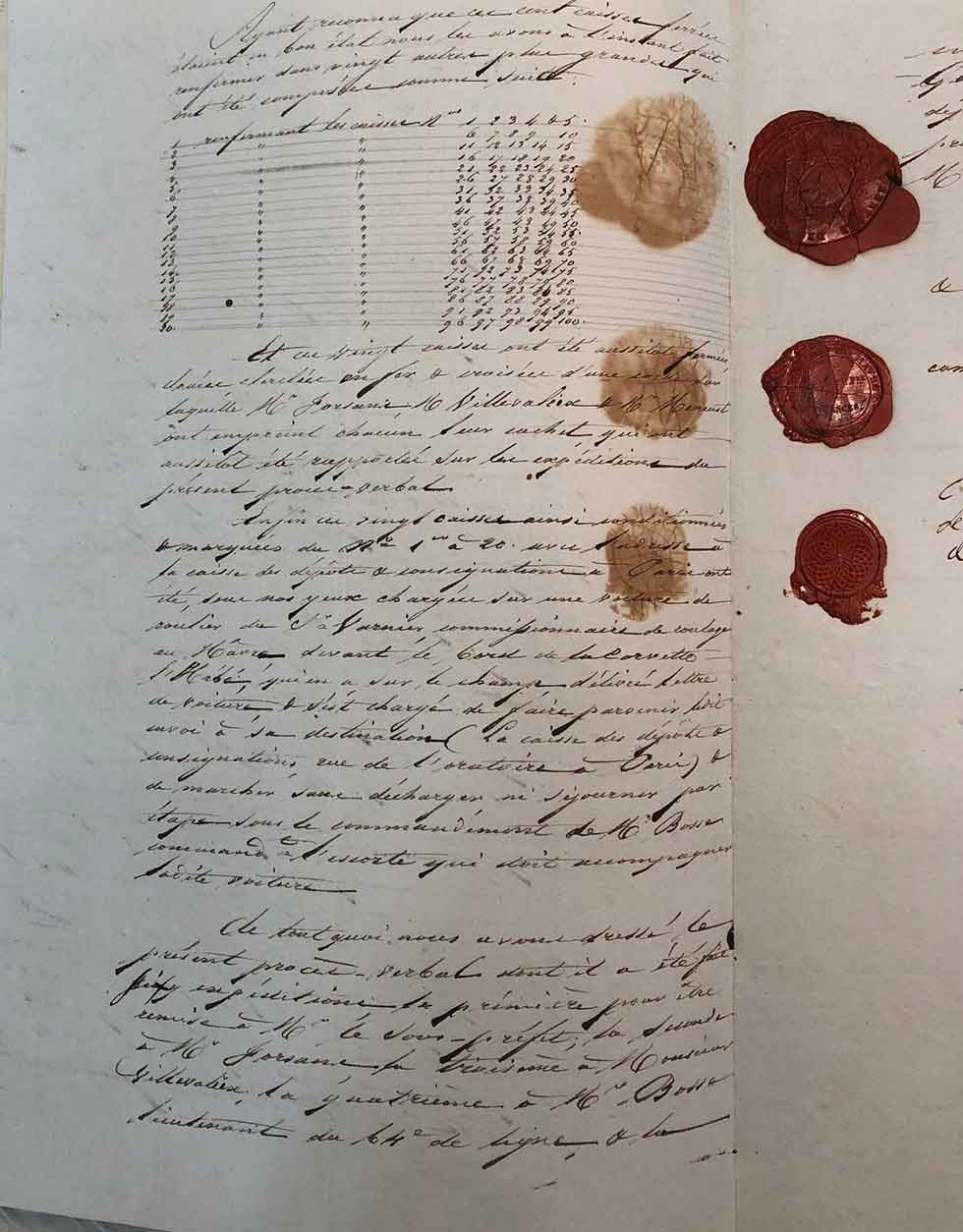HAITI | A 200-Year Debt Sentence: The Fight for Justice and Reparation

KINGSTON, Jamaica — On the 200th anniversary of what many historians call one of history's most brazen financial crimes, Caribbean leaders are demanding France repay a staggering debt owed to Haiti – a debt that has kept the first Black republic imprisoned in poverty for two centuries.
"Justice, restitution, reparation!" declares the Past Members' Association of the People's National Party Youth Organization (PNPYO) in Jamaica, joining forces with the Assembly of Caribbean People to mark the bicentennial of France's infamous 1825 ransom demand – a financial punishment for Haiti's audacity to win independence from colonial rule.
“ Two centuries after an extortionate ransom was imposed on a nation born from revolution, Caribbean voices demand France finally pay its dues ”
The call comes exactly 200 years after the French monarchy, at gunpoint, forced Haiti to pay an astronomical 150 million gold francs in exchange for diplomatic recognition of an independence Haitians had already secured on the battlefield two decades earlier.
"This imposed agreement 200 years ago was immoral, coerced, illegal and unjust," states the PNPYO declaration. "Caribbean governments and people should be loud and strong in our advocacy to insist that France repays the Haitian people in today's value."
The Ransom That Crippled a Nation
The extortion's magnitude is difficult to comprehend even today. The 150 million gold francs demanded in 1825 represented 10 times Haiti's annual tax revenue and 300% of its GDP – a financial stranglehold that would force Haiti to borrow from French banks at predatory rates, creating a cycle of debt that would last 127 years.
To grasp the full injustice, one must understand what sparked this ransom. St. Domingue, as Haiti was known under French rule, was the crown jewel of France's colonial empire, generating 40% of world production and funneling immense wealth to French capitalists through the brutal exploitation of enslaved Africans.
When those enslaved people rose up, defeated Napoleon's forces, and established their independence in 1804, they didn't just liberate themselves – they shattered the colonial order and challenged the very foundations of European imperial power. France's response was to punish this defiance with financial warfare.
Under threat of naval bombardment, Haitian President Jean-Pierre Boyer signed the ordinance in 1825. The document itself reveals colonial contempt – it never even acknowledged "Haiti" by name, referring only to "inhabitants of the western part of the island of St. Domingue."
Even more perversely, the ransom's calculation included compensation for the "lost value" of the formerly enslaved people themselves – effectively forcing Haitians to purchase their own freedom twice.
Two Centuries of Economic Bleeding
“ By what standard of morality can the violence used by a slave to break his chains be considered the same as the violence of the slavemaster? - Walter Rodney ”
The consequences were devastating and continue to echo through Haiti's struggles today. To meet annual payment installments, the Haitian government dedicated up to 70% of its tax revenue to debt service. This systematic drainage crippled public investment in infrastructure, education, and healthcare that might have built a stable foundation for the young nation.
When tax revenues fell short, Haiti was forced to take drastic measures. Vast tracts of precious hardwood forests were clear-cut and sold on international markets to raise funds, accelerating a deforestation crisis that undermined agricultural productivity and set the stage for the environmental devastation that plagues Haiti today.
"Devoting the bulk of tax revenues to the payment of this ransom obstructed the process of construction and paralysed public investment in basic infrastructure and essential education and public health services," states the Assembly's declaration.
The Bill Comes Due
A recent Brattle report on Transatlantic Chattel Slavery, commissioned by the University of the West Indies and the Patterson Institute, specifically highlights Haiti's case as "one of the saddest moments in the history of Transatlantic Chattel Slavery." The report condemns France for extracting 90 million francs from Haiti – approximately $135- billion in today's money – which Haiti spent 122 years repaying.
"The problems that Haiti has suffered over the years, beyond question, is partly a result of this unjust extraction of wealth from a newly independent country. This is part of the explanation for the difficulties being experienced today by Haiti," the report states, invoking the principle of "unjust enrichment" as a legal basis for restitution.
Beyond this specific Haitian case, other estimates of France's total debt vary widely. Former Haitian President Jean-Bertrand Aristide calculated the figure at $21.7 billion. Economist Thomas Piketty places it closer to $28 billion. Other studies suggest the true figure, accounting for what historians call the "double debt," could reach $115 billion – "which only compensate for part of the damage and harm caused by this criminal ransom," according to the Assembly's statement.
 Whatever the precise amount, the call for restitution is clear: France must pay, and the Haitian people – particularly the peasantry who bore the heaviest burden of this financial oppression – must determine both the amount and how reparations should be implemented.
Whatever the precise amount, the call for restitution is clear: France must pay, and the Haitian people – particularly the peasantry who bore the heaviest burden of this financial oppression – must determine both the amount and how reparations should be implemented.
"The Haitian people must be the main players in the reconstruction process," the declaration insists. "They cannot accept repayment mechanisms that, like Charles X's order, call into question or violate their sovereignty and dignity."
A Call for Caribbean Solidarity and Global Action
The PNPYO Past Members Association is now working to educate Jamaicans about Haiti's historical significance and the ongoing injustice. "Most of us were never taught about the Haitian Revolution other than a few paragraphs in our history curriculum," they acknowledge, pledging to share their position with all parliamentarians and party leadership.

The Assembly of Caribbean People frames this struggle as part of a broader fight against neo-colonialism and the structural mechanisms of global capitalism that continue to impoverish former colonies.
"The fight we are waging today with the Haitian people to demand justice, restitution and reparation has an important symbolic dimension and is at the heart of the fight against neo-colonialism, imperialism and all the mechanisms of capitalist domination that reduce our peoples to hunger, misery, over-exploitation and despair," the Assembly declares.
As the bicentennial of this financial crime passes, the call echoes across the Caribbean: France must pay its debt. Haiti must be allowed to emerge from its "200 years of solitude imposed by imperialist powers." And the values of the Haitian Revolution – justice, solidarity, and the radical equality of all human beings – must finally prevail over the legacy of colonial exploitation.
"No to slavery debt! No to the commodification of human beings!" the declaration concludes. "Long live revolutionary solidarity among peoples!"
For more information, contact Leroy Cooke: 876-343-0659 or Louis Moyston: 876-880-1892.
